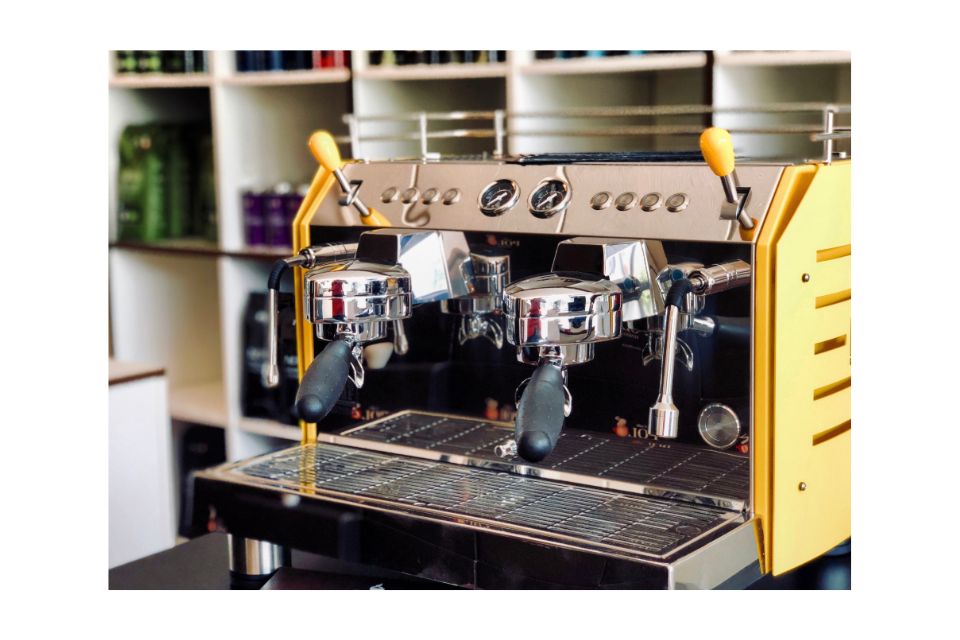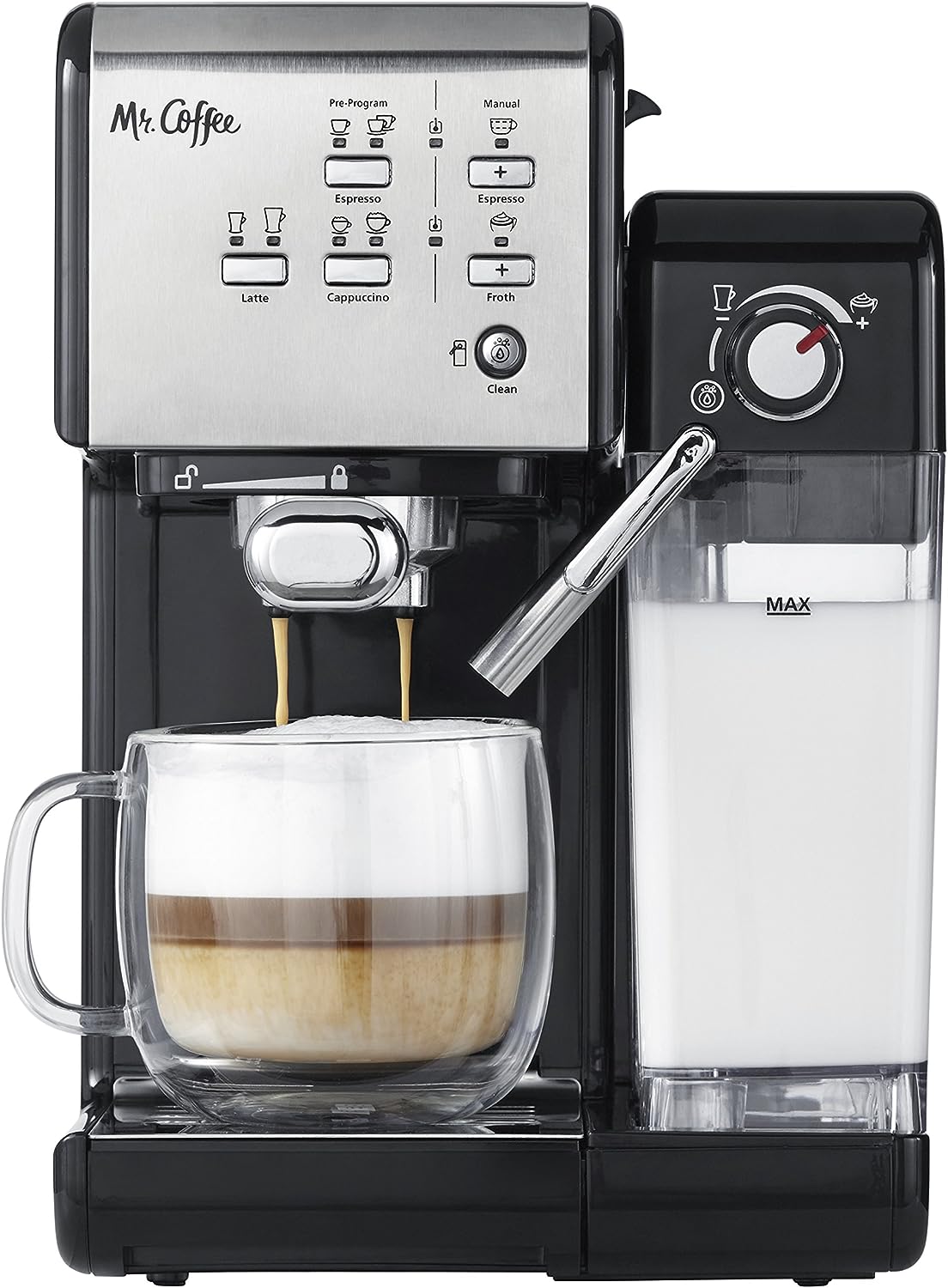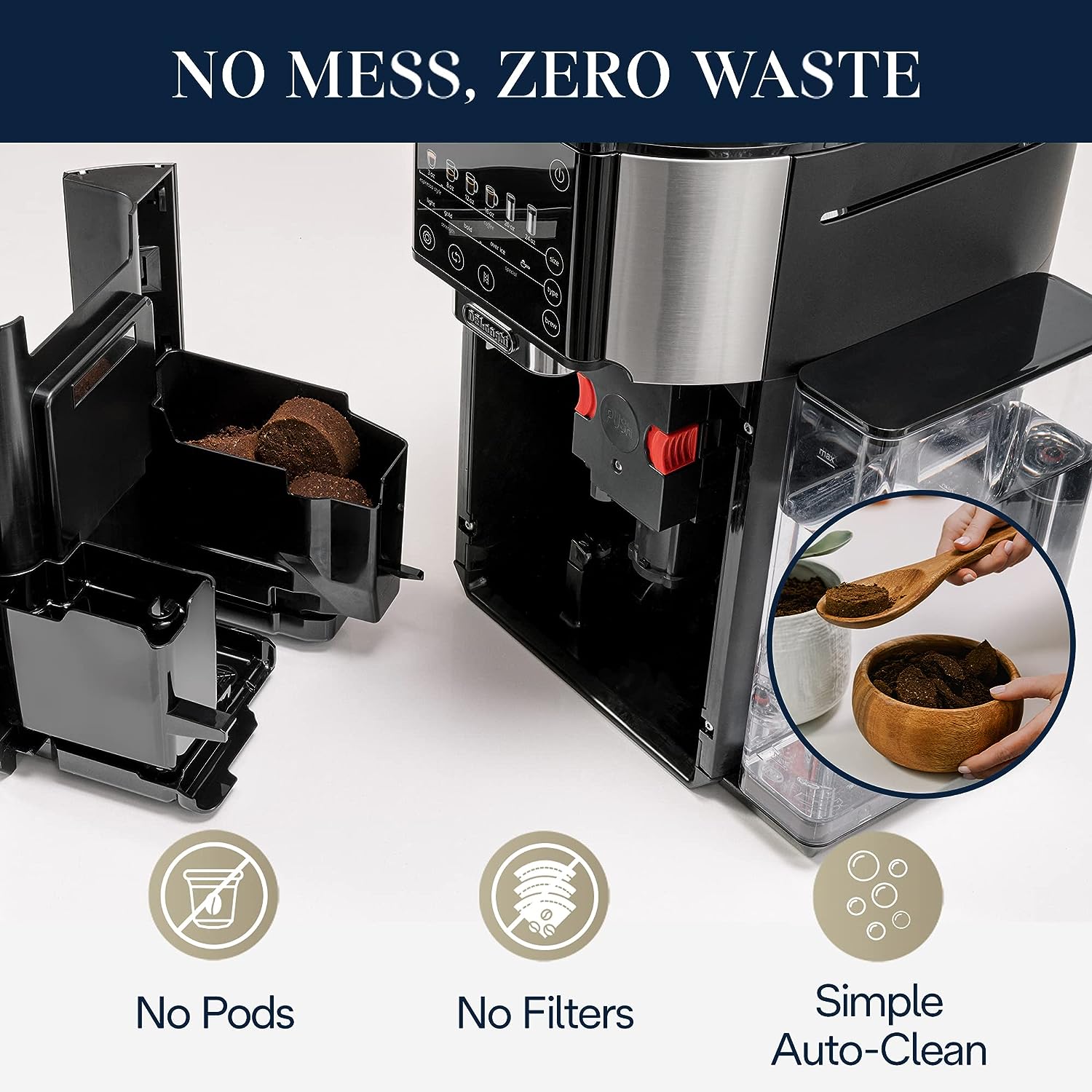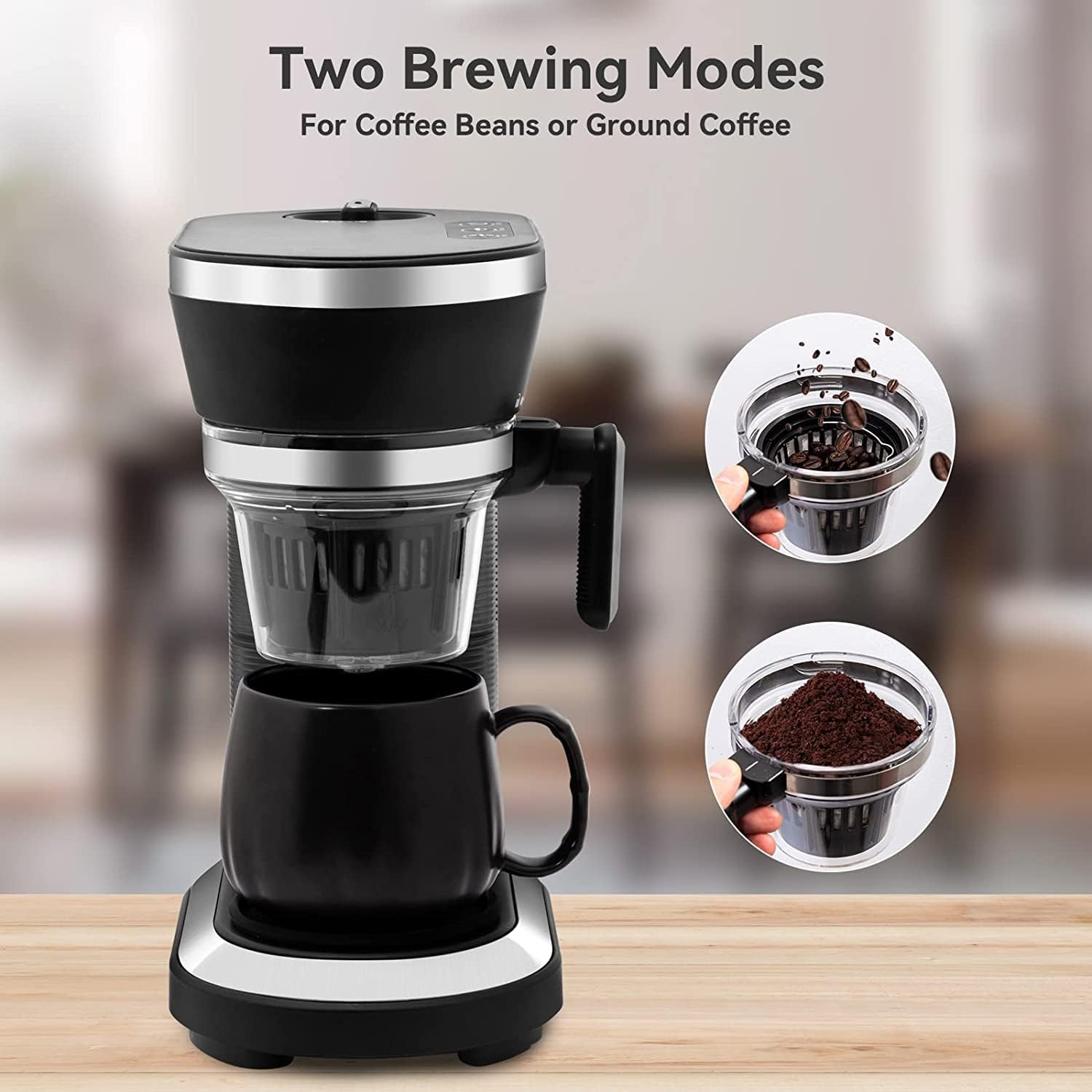Introduction
For coffee enthusiasts, investing in an espresso machine is a significant decision. But how long do these machines actually last? The answer varies depending on factors such as the quality of materials used, frequency of use, and maintenance routines followed by owners.
With coffee machine lifespans ranging anywhere between 6 to 20 years, it’s crucial to be well-informed before making your purchase. In this blog post, we’ll explore the key aspects that influence an espresso machine’s durability and provide essential tips on extending its lifespan.
Key Takeaways
- The lifespan of espresso machines ranges from 5-10 years for home models and 3-5 years for commercial-grade ones.
- Proper maintenance, including regular cleaning and descaling, prompt repairs of damages, and consistent servicing, can significantly extend the durability of your machine.
- High-quality materials like brass or copper construction can provide better longevity.and cost-effectiveness over time if you’re willing to spend more upfront on mid-range or affordable models.
- Proper storage practices can also help protect your espresso machine from dust and moisture damage when not in use.
Factors Affecting The Lifespan Of Espresso Machines
The quality of materials and construction, frequency of use, and maintenance and cleaning are all factors that can affect the lifespan of espresso machines.
Quality Of Materials And Construction
High-quality materials and construction play a crucial role in determining the longevity of espresso machines. Espresso beginners should invest in equipment made from durable components such as brass or copper, which can better withstand wear and tear.
For example, high-end brands like Breville or DeLonghi offer espresso machines with superior craftsmanship that can last for 5-10 years or even longer if properly cared for.
These machines often feature commercial-grade parts that ensure reliability and efficiency throughout their lifespan.
Frequency Of Use
The frequency of use is a significant factor in determining the lifespan of an espresso machine. Home espresso machines that are used daily or less frequently can last anywhere from 5 to 10 years, whereas commercial-grade machines may have a shorter lifespan due to their frequent usage and constant demand.
For instance, descaling your machine regularly (depending on water hardness) helps prevent buildup that could affect the functionality of your espresso maker.
Additionally, using filtered water instead of tap water can reduce mineral deposits that may accumulate over time and contribute to wear and tear on internal components.
Maintenance And Cleaning
Maintaining and cleaning your espresso machine is vital to ensure it lasts as long as possible. A well-maintained machine can last up to a decade or more, compared to poorly maintained machines that may only last a few years.
Cleaning your machine after each use and descaling it every few months will help prevent limescale buildup in the boiler and extend its lifespan.
Regular servicing of your espresso machine is also essential for longevity. Many manufacturers offer warranties that cover repairs and maintenance for a certain period, ensuring your machine is always in top condition.
For example, Breville Barista Express and Bambino Plus come with a one-year warranty covering all parts and labor costs if there are any manufacturer defects within the first year of purchase.
Average Lifespan Of Espresso Machines
Home espresso machines typically last between 5-10 years, while commercial-grade machines have a shorter lifespan of 3-5 years due to frequent usage.
Home Espresso Machines: 5-10 Years
On average, a home espresso machine can last between 5 to 10 years. This lifespan can vary based on factors such as the quality of materials and construction, frequency of use, and maintenance practices.
Mid-range espresso machines with good build quality and properly cared for can be expected to last for five or more years. For example, Breville’s Barista Express is a popular choice among home baristas that typically lasts for more than five years when maintained well.
Regular cleaning, descaling, proper storage, prompt repairs of damages along with consistent maintenance are essential to extend the lifespan of any espresso machine beyond these averages mentioned above.
It’s important to invest in high-quality materials upfront if you want your coffee maker to last longer than mid-range models.
Commercial Espresso Machines: 3-5 Years
Commercial espresso machines are usually more expensive than home espresso machines, but they can be harder to maintain. Commercial-grade machines are designed for high-volume use and have many moving parts that can wear out quickly with frequent usage.
Typically, commercial espresso machines last between 3-5 years if properly maintained.
More upscale models made from brass or copper may come with a longer warranty period and offer better longevity than their cheaper counterparts. With proper maintenance (such as regular cleaning and descaling), a commercial-grade machine will perform well throughout its lifespan while providing consistent results for your café or restaurant.
Tips To Extend The Lifespan Of Espresso Machines
Proper storage, regular cleaning and descaling, prompt repairs of damages, and consistent maintenance and servicing are essential to extend the lifespan of your espresso machine.
Proper Storage
To ensure that your espresso machine lasts for as long as possible, proper storage is key. After each use, it’s important to wipe down the exterior of the machine with a soft cloth and store it in a cool, dry place.
It’s also important to protect your espresso machine from dust and moisture by covering it when not in use.
By taking these simple measures, you can help extend the lifespan of your home espresso machine up to 10 years or more with normal use.
Regular Cleaning And Descaling
To ensure that your espresso machine lasts for years, it’s crucial to clean and descale it regularly. Cleaning the machine frequently helps to remove any buildup of coffee oils and residue, which can affect the quality of your brew.
Descaling is also necessary because minerals from water tend to accumulate and clog pipes in the machine over time, causing damage or affecting its performance.
One way to maintain your espresso machine is by using a specialized cleaning solution as recommended by the manufacturer. You might also consider using citric acid or vinegar solutions for regular internal cleaning instead of relying on harsh chemical cleaners that could harm parts like boilers or pumps.
If you are unsure about how often to clean and descale your specific model, refer to its manual or reach out to customer support for advice.
Prompt Repairs Of Damages
If your espresso machine experiences any damages or malfunctions, it’s important to address them as soon as possible. Delaying repairs can lead to further damage and potentially shorten the lifespan of your machine.
For example, if you notice a leak in your espresso machine, it’s best to immediately turn off the device and unplug it from its power source. Assess the leak and determine whether it’s a simple fix such as tightening a loose component or requires professional repair.
By promptly addressing any damages and seeking professional help when necessary, you can extend the lifespan of your espresso machine and avoid costly repairs down the line.
Consistent Maintenance And Servicing
Consistent maintenance and servicing are crucial to the longevity of an espresso machine. It’s essential to follow the manufacturer’s recommendations for maintenance, which may include regular cleaning, descaling, and oiling.
To ensure your espresso machine lasts as long as possible, it is recommended that you get it serviced at least once a year by a professional technician. This will help identify any potential issues early on, preventing them from causing more significant damage down the line.
For those who use their machines heavily (such as in commercial settings), more frequent servicing may be necessary to maintain optimal performance levels.
Machine Maintenance and Care
How long your espresso machine lasts will depend heavily on how you clean and maintain your machine. Descaling the machine, getting the machine serviced when necessary, and simply using the machine on a regular basis can help keep your machine in top condition. This is true whether you’re considering a semi-automatic machine or a fully automatic machine.
So yes, while espresso machines have a lifespan, and some machines tend to last longer than others, the types of coffee beans and grounds you use in your machine play a crucial role. The espresso machine should last for at least five years with proper care. However, with a thorough cleaning and descaling of the machine, plus careful use, the espresso machine may last even longer.
The takeaway? Espresso machines can be expensive, but they’re a great investment for any coffee lover. Taking good care of your machine, choosing your beans wisely, and routine cleaning can ensure that your high-quality espresso machine will last a long time, allowing you to enjoy delicious espresso for years to come.
Can the type of coffee beans you use impact the lifespan of your espresso machine?
Understanding the nuances of your espresso machine can make a significant difference, especially when you’re thinking about the lifespan of a Breville espresso machine or any espresso machine brand.
Type of Espresso Machine and Lifespan
Whether you’re using a semi-automatic espresso machine, an automatic espresso machine, or even a super-automatic espresso machine, it’s important to note that these machines are built to last. Breville machines, for example, if well cared for, can last for many years, giving you years of great-tasting coffee. Espresso machines tend to last even longer in a commercial setting; coffee shop espresso machines tend to last longer than home units, as they’re often built with more robust components.
Coffee Beans and Their Effect on Your Machine
Different coffee grounds can indeed impact the life of your machine. Certain types of espresso, or rather the coffee grounds and oils, can build up inside the machine over time. This buildup can decrease the efficiency of your machine, affect the perfect espresso shot’s extraction, and ultimately shorten the lifespan of a Breville espresso, Delonghi coffee machine, or an espresso machine you might use.
Conclusion
In conclusion, the lifespan of espresso machines depends on several factors such as the quality of materials and construction, frequency of use, and proper maintenance.
Home espresso machines can last up to 10 years with consistent care while commercial-grade ones typically have a shorter lifespan. By regularly cleaning and descaling your machine, promptly repairing damages, and storing it properly, you can extend its durability.
Remember to choose high-quality materials for mid-range or affordable machines for long-term cost-effectiveness.
FAQs:
1. How long can I expect an espresso machine to last before needing repair?
The lifespan of an espresso machine can vary depending on usage, but with proper maintenance and care, a high-quality machine should last around 10 years or more.
2. What factors affect the longevity of an espresso machine?
Factors that can affect the lifespan of your espresso machine include usage frequency, quality of water used during operation, regular cleaning and maintenance schedules, and overall build quality/design.
3. When should I consider repairing or replacing my espresso machine?
If you start noticing issues such as declining taste in coffee flavor or inconsistency in brewing results over time, it may be time to schedule a professional inspection for repair services. However, if the unit has been well cared for but is still seeing frequent malfunctions – replacement might be necessary versus continuing costly repairs which could exceed the original purchase price.
4. How often should I clean my espresso maker to keep it running smoothly?
For optimal function & longevity, we recommend cleaning our machines daily after each use by wiping down the exterior with warm soapy water while commencing routine filter changes either weekly/bi-weekly basis along with descaling every few months for those living in hard-water areas where minerals collect easily inside brewing chambers leading internal damage from buildup over extended periods causing permanent damage overtime damaging components necessary for producing fresh brews consistently yielding unsatisfactory outcomes later attempts!




